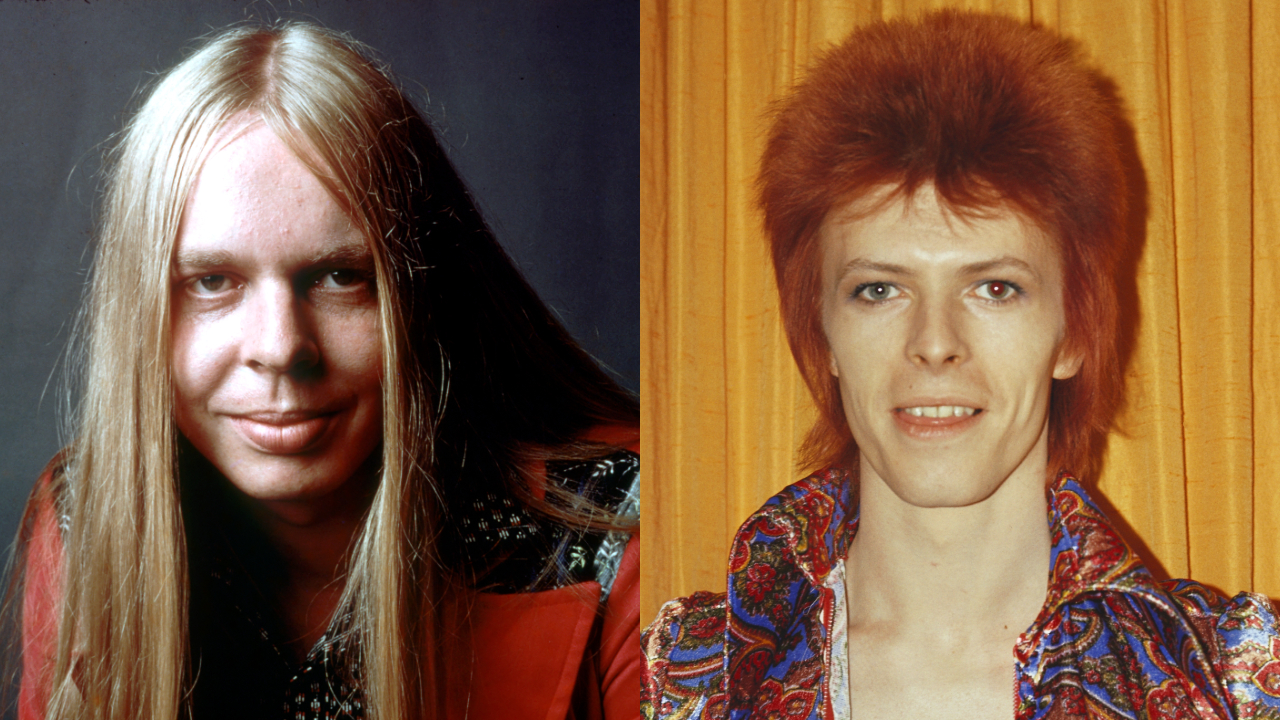"David Bowie said, I hear you play a mean piano": Rick Wakeman on playing on Space Oddity and Hunky Dory, then turning down David Bowie's invitation to join The Spiders From Mars on the same day he joined Yes
Rick Wakeman was a popular and much in-demand musician in the early '70s, as his friend David Bowie would discover to his cost

Select the newsletters you’d like to receive. Then, add your email to sign up.
You are now subscribed
Your newsletter sign-up was successful
Want to add more newsletters?

Every Friday
Louder
Louder’s weekly newsletter is jam-packed with the team’s personal highlights from the last seven days, including features, breaking news, reviews and tons of juicy exclusives from the world of alternative music.

Every Friday
Classic Rock
The Classic Rock newsletter is an essential read for the discerning rock fan. Every week we bring you the news, reviews and the very best features and interviews from our extensive archive. Written by rock fans for rock fans.

Every Friday
Metal Hammer
For the last four decades Metal Hammer has been the world’s greatest metal magazine. Created by metalheads for metalheads, ‘Hammer takes you behind the scenes, closer to the action, and nearer to the bands that you love the most.

Every Friday
Prog
The Prog newsletter brings you the very best of Prog Magazine and our website, every Friday. We'll deliver you the very latest news from the Prog universe, informative features and archive material from Prog’s impressive vault.
One afternoon in the summer of 1969, 20-year-old Rick Wakeman was rehearsing with a 17-piece soul band at the Top Rank ballroom in Reading when he received an agitated phone call from producer Tony Visconti.
"I'm in the studio with David Bowie," Visconti told Wakeman. "We're recording a piece, we've got a Mellotron, no-one can keep it in tune, can you get up here quick?"
Wakeman had done a session with Visconti earlier that year for a band called Junior's Eyes, and knew that doing the producer a favour would help him land further paid session work in future, so he drove down to London as soon as he could skip out of rehearsals. Upon arriving in Soho, he learned that Visconti was working with Bowie on a song called Space Oddity.
"I arrived at Trident Studios, sat down at the Mellotron, and after the first take he said, 'That’s it'," Wakeman recalled to Classic Rock in 2021. "I told him I’d only been there 25 minutes."
Discussing the session with Planet Rock magazine in 2017, Wakeman recalled, "Afterwards David said, 'Tony tells me that you play a mean piano, would you like to do some piano stuff with me?' I said, Yeah, I'd love to. We did Wild Eyed Boy From Freecloud [released as the B-side to Space Oddity] and Memory Of A Free Festival a few weeks later, among other things. Space Oddity was a big hit, and David called me and said, 'I want to play you some new songs'."
"I remember sitting in this room, while he took out this battered 12-string and played me the songs that ended up on Hunky Dory," Wakeman told Classic Rock's Henry Yates. "I’d been doing sessions for years, but I’d never heard so many songs that were such winners."
Long before Hunky Dory was released in December 1971, Bowie had already moved on, dreaming up a concept about an androgynous alien rock star sent down to Earth: Ziggy Stardust. He reached out to Wakeman once more, offering the keyboardist a position in a new band he was putting together with guitarist Mick Ronson, The Spiders From Mars. Coincidentally, that same day Wakeman was invited to join Yes, and in his heart, he'd already made up his mind as to his next step.
"It was like being asked to join Manchester United or Chelsea," Wakeman recalled. "I took Yes, because within the Spiders David was always going to be the leader."
"Years later, David told me I made the right decision, ’cause he got through a lot of keyboard players," Wakeman told The Telegraph in 2017. "He had a ruthless streak. He used to say, If I’m going to fail, I’m going to fail at something I wanted to do, not that somebody else wanted me to do. Which is a great ethos. He was an inspiration."
Sign up below to get the latest from Classic Rock, plus exclusive special offers, direct to your inbox!

A music writer since 1993, formerly Editor of Kerrang! and Planet Rock magazine (RIP), Paul Brannigan is a Contributing Editor to Louder. Having previously written books on Lemmy, Dave Grohl (the Sunday Times best-seller This Is A Call) and Metallica (Birth School Metallica Death, co-authored with Ian Winwood), his Eddie Van Halen biography (Eruption in the UK, Unchained in the US) emerged in 2021. He has written for Rolling Stone, Mojo and Q, hung out with Fugazi at Dischord House, flown on Ozzy Osbourne's private jet, played Angus Young's Gibson SG, and interviewed everyone from Aerosmith and Beastie Boys to Young Gods and ZZ Top. Born in the North of Ireland, Brannigan lives in North London and supports The Arsenal.
